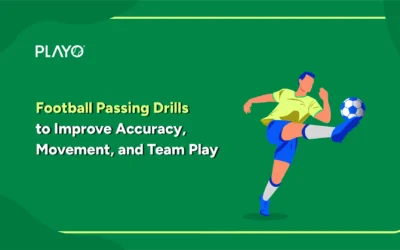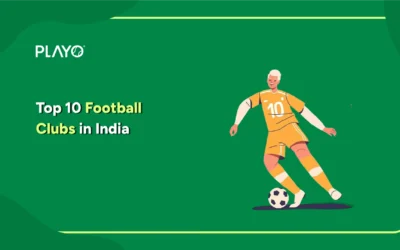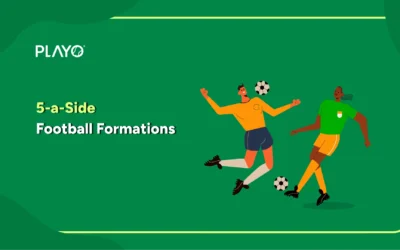In this article, we deal with offensive football tactics. Football is all about scoring goals and attacking tactics is all about how to score them.
The attacking tactics differ from team to team as each tactic requires different players who specialise in a certain set of skills. As it should be, teams switch their tactics according to the strength and weaknesses of the opposition.
A few teams, mostly in a big knockout game, often play with offensive high press football and as soon as they put the ball into the back of the net, they switch tactics and sit deep to defend into their own half – content with a one-goal advantage. On the other hand, some teams may not want to remove their foot from the pedal despite a one-goal advantage and continue attacking aggressively in a bid to knock out the opposition completely from the game.
Here is a brief of some of the most influential offensive tactics employed by teams in football:
#1. Possession football:
One of the tactics which suit the punchline “easier said than done.” This tactic revolves around the philosophy of dominating possession with short and secure passing and carving out goal-scoring opportunities at will. The idea behind this style of play is frustrating the opponents by not giving them a chance to get into the game – with the frustration often resulting in rival players drawing out from their formation, leaving spaces behind them, making forward passing possible.
This style of play has been revolutionised by Pep Guardiola, who summed this style of play perfectly in a single quote: “The objective is to move the opponent, not the ball.”
#2. Counter-Attacking football:
The aim of this tactic is to catch the opponent on the break. This tactic comes into play when the opposition players concedes possession in midfield or attack with their teammates still further up the pitch to support the attack. Counter-attacking football may involve leaving one or two players near the halfway line, ready to charge towards the goal given half a chance, catching their opponents off guard. This is one of the most devastating tactics in modern football and is employed successfully by Real Madrid.
#3. Long-ball:
Not the most elegant, or pleasing eye tactic, but can work wonders and is remarkably effective if deployed well. This tactic doesn’t rely on keeping possession of the ball. Nor does it exploit the gaps left behind by charging marker or utilizing the width of the pitch. A long ball is an opportunistic tactic, with the defenders sweeping up and clearing the balls from dangerous areas, hoping the balls find the head of the striker upfront, who in turn will hold the ball long enough to allow reinforcements to arrive, or exploit a defensive error and convert all of it into a goal.
Since long-ball mostly puts into use aerial passes, target man up front should be tall and strong, fending off defenders.
#4. Wide Play:
Wide Play puts the pace of the wingers to good use. By spreading the ball wide, a new angle of attack and a number of attacking opportunities arise. A winger can either latch onto a through ball, drag the opposing midfielders and full-backs out of their positions. This results in creating spaces to exploit, dribble past, cut inside, or whip in a cross to supply his teammates. Wide Play proved effective for teams including PSG, playing Neymar and Mbappe at the wings, utilising their pace and creativity.
While all offensive tactics are very effective, teams have to recognise which one will work best for them. This has to planned according to the resources they have at their disposal.
Visit our INSTAGRAM




